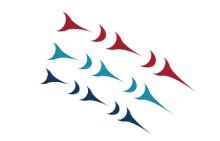Project 57 Week 30: Relationality

Relationality is a foundational concept of Indigenous knowledge and philosophy. Citing Clara Sue Kidwell (1993), Sandra Littletree et al., explains how “expressions of Indigenous knowledge are the discernable manifestations of knowledge—the nouns that are created when we exercise our relationships with the land, water, ceremonies, people, stories, teachings, and observations” (2020). Moreover, “these are the tangible and intangible objects, belongings, art, songs, words, and thoughts that may become part of the collections of information institutions” (Littletree, S., et al, 2020).
Relationality is understood as interconnectedness and it is a “central core of First Nations, Inuit, and Metis worldviews and ways of knowing” (First Nations Pedagogy). According to Dudgeon, P., & Bray, A., “Indigenous relationality is recognized as the life force, and that which supports and nourishes life” (Indigenous Relationality: Women, Kinship and the Law, 2019). Dr. Amy Shawanda (Odawa Kwe) explains how “Our Indigenous Knowledge comes from all living beings, and we honor them and reveal their importance within songs, stories, ceremonies, and within our laws. This is what creates the Relational Accountability of our relationships, thus causing us to be aware of our roles and our responsibilities to each other and to the living world” Nda-nwendaaganag (All My Relations). In essence, the idea of relationality posits that we are all interconnected and, as Littletree et al, citing Shawn Wilson (2008) expresses, that “we all exist in relationship to each other, the natural world, ideas, the cosmos, objects, ancestors, and future generations, and furthermore, that we are accountable to those relationships” (Littletree, S., et al, 2020).
Another way to understand relationality is through the phrase “All my relations” as detailed by Thomas King in the introduction to the Indigenous short story collection, “All My Relations: An Anthology of Contemporary Canadian Native Fiction”. King illustrates how
See also: Land based pedagogy
For more information on relationality, please consider the following resources:
- Indigenous Information Literacy: Nêhiyaw Kinship Enabling Self-Care in Research. J. Loyer. (2018). In The Politics of Theory and the Practice of Critical Librarianship.
- All My Relations by Carey Newman—Ha̱yałka̱ng̱a̱me’. (n.d.). [Video recording].
- Centering Relationality and CARE for Stewardship of Indigenous Research Data. Belarde-Lewis, M., Littletree, S., Braine, I. R., Srader, K., Guerrero, N., & Palmer, C. L. (2024). Data Science Journal, 23, 32–32.
- Toward a relational paradigm—four points for consideration: Knowledge, gender, land and modernity. Stark, H. (2018). In Resurgence and Reconciliation : Indigenous-Settler Relations and Earth Teachings.
- Research is ceremony : indigenous research methods. (2008). S. Wilson.
The Decolonizing the Library Working Group invites everyone to learn alongside us with Project 57. This project is a response to the TRC Call to Action 57, which calls on "federal, provincial, territorial, and municipal governments to provide education to public servants on the history of Aboriginal peoples."
For more information visit Indigenous Initiatives.

